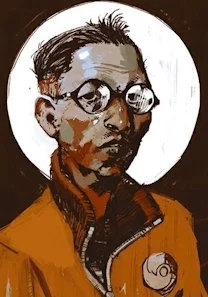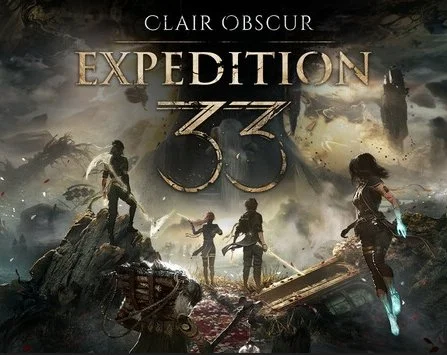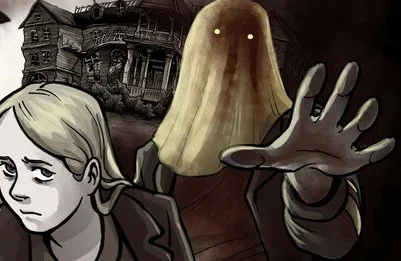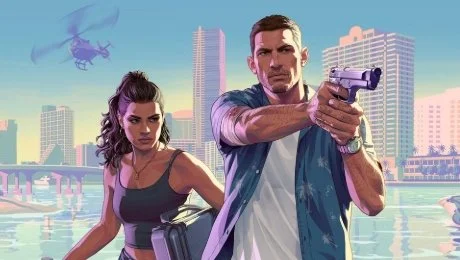Wanted: Dead, Already Dead: A Batsh*t Psychoanalytic Reading Of A Plot That Barely Exists
The Zombie Unit Is Not a Metaphor. It Is the Premise.
On paper, Wanted: Dead barely has a plot. Critics describe it as a cyberpunk cop story that forgets who its villains are, drops characters mid sentence, and cuts to credits just when it looks like it might start making sense. Which is exactly why it begs for the most overcooked, red-string-on-corkboard reading possible. If the game refuses to deliver a coherent techno thriller, we might as well assume it is secretly about purgatory, weaponised memory, late capitalism and the death drive. In other words: if Wanted: Dead will not give us a plot, we will manufacture one out of its jank.
Let us start with the most obvious textual clue that everyone politely ignores. Hannah Stone leads the “Zombie Unit.” In a normal game, that is just edgy branding for a squad of ex cons. In a batshit reading, it is literal. The Zombie Unit is already dead, operating in a liminal loop where they re enact the same violence over and over. This is exactly how Wanted: Dead actually plays. You fight through similar corridors, die, rewind ten minutes, and repeat the same encounters. The game design accidentally functions as a theological statement. Checkpoints are not save points. They are judgment scenes. You are not progressing through a story. You are trying, and mostly failing, to earn an afterlife that never arrives.
This would also explain why dangling plot threads vanish into nothing. The masked assassin who appears and disappears. The seductive insurance agent who suggests a larger conspiracy. The rogue synthetic October who seems important, then evaporates. They are not characters in a conventional narrative. They are echoes of Hannah’s past, ghostly archetypes that surface in her dying brain. They never resolve because real trauma does not come with cathartic third act monologues. It just loops. The confused player sitting there, asking “who was the villain again,” is inhabiting the same confused subjectivity as a protagonist who cannot quite remember who ruined her life.
The Fish Head Is the Truth of the World
Then there is the fish head soup.
In isolation, that dinner scene is just weird: Hannah sits in front of a truly cursed bowl of fish, fails to eat it, and the game moves on. It has no mechanical relevance and no explicit symbolic payoff. Under a batshit lens, it is the most honest moment in the game. Here is a woman who has been fed war, incarceration, cyberpunk carnage, and now a final insult: a meal that is technically food but emotionally inedible. The fish head literally stares back at her, a dead thing placed in front of a woman who might also be dead inside, or simply dead, full stop. She cannot consume it because she has already consumed too much. The scene goes nowhere in the plot because it is not plot. It is a flash of pure affect: disgust, exhaustion, refusal.
Ramen Industrial Complex: Comfort as Corporate Sedation
The ramen detour intensifies this angle. One moment you upgrade guns. The next you are watching an educational video about the history of ramen, and then playing a rhythm game where Hannah eats until she passes out into the bowl. Mechanically it is a silly mini game. Symbolically it is the opposite of the fish head. Here, food becomes overconsumption. The world has moved from inedibility to binge. The fact that this comes packaged as a cheerful corporate explainer video is almost too on the nose. In a world run by corps, even your coping mechanisms arrive as branded content. Hannah literally collapses face first into commodified comfort. Then, snap, you are back to dismembering people in a hallway. Comfort is not allowed to last.
The Karaoke Glitch in the Simulation
The infamous karaoke scene with “99 Luftballons” fits neatly into this framework if we let it. The squad debates random social topics, then abruptly bursts into song in a diner, before the game yanks you back into firefights. On the surface this is tonal whiplash for the meme value. Under a more deranged microscope, it looks like a glitch in the simulation. The lyrics of “99 Luftballons” are about a misunderstanding that escalates into global catastrophe. In Wanted: Dead it becomes a cheerful backing track for a squad whose entire existence may be a misread, a cosmic clerical error that has sentenced them to endless combat drills. The singalong is not just goofy. It is the universe buffering for a moment, accidentally revealing that this war story is built on an absurd misfire.
Androids, Plastic People, and an Uncanny World
The android subplot, which the game half raises and half abandons, is ripe for wild inference. Synthetic beings in fiction often stand in for labour, marginalised bodies, or questions about personhood. In Wanted: Dead, the android conspiracy exists mostly as an excuse for boss fights and lore crumbs that lead nowhere. So let us flip it. What if the “real” twist is that everyone, not just the androids, is synthetic. Doll like character models with lifeless eyes, stilted voice acting from people who do not sound like anyone you meet in everyday life, bizarre line deliveries that feel like the first rehearsal instead of the final cut. The game accidentally performs a world in which no one is fully human. Everyone is an NPC that escaped quality control. The uncanniness of the presentation becomes evidence inside the fiction that these people are constructed, badly, by some indifferent corporate god.
Channel Surfing Through a Broken Reality
This is where the multi media mishmash starts to look deliberate, at least to a generous paranoiac. The live action FMV inserts, the anime cutscenes, the hidden shmup in the arcade. None of them fit together narratively, which is why a sensible reviewer throws up their hands. A conspiratorial viewer can instead treat them as signal interference. Hannah’s mind, or the simulation she is stuck in, is glitching between channels. Arcades, anime, late night television, war documentaries, training footage. All of it bleeds together. She is no longer a character in a tidy cyberpunk script. She is a viewer trapped inside the content stream of modern media, where war is just another channel to flip to between ramen ads and nostalgic pop songs.
Difficulty as Institutional Cruelty
Even the oft mocked difficulty curve supports a spitefully coherent reading. Wanted: Dead is hard in a way that often feels unfair. Enemies sponge bullets, checkpoints are stingy, and Easy mode is hidden like a shameful cheat rather than offered up front. Instead of treating this as purely bad design, imagine it as structural empathy. The system refuses to smooth your path or explain itself, which is exactly how institutions treat people like Hannah: ex cons, former war criminals, disposable mercenaries. The game is not interested in your comfort because the world it depicts is not interested in hers. You are meant to feel stonewalled and resentful. The sudden, abrupt credits then mirror the equally abrupt end that awaits soldiers chewed up by a violent economy. There is no catharsis. Just a hard stop.
The Anti Story as the Real Story
At this point the reading begins to fold in on itself. Maybe the reason the publisher called Wanted: Dead a “love letter” rather than a story is because the narrative was never the point. The point is to trap you inside a feeling: the sensation of being jerked between tones, denied closure, fed garbage, sedated by ramen and karaoke, and returned to the grind. The jank is not a bug but a texture. An honest depiction of what it feels like to live inside a system so large and stupid that you can only respond with gallows humour and absurdism. When critics oscillate between calling it a train wreck and insisting they love it, they are enacting the same cognitive dissonance Hannah might feel about her job. It is awful and it is all she has.
Simply Put: Broken Brilliance by Any Means Necessary
Of course, none of this requires conscious intent from Soleil. That is the beauty of a batshit reading. It happily blurs the line between authorial design and audience projection. Maybe the devs simply threw in everything they thought was cool: anime, FMV, Verhoeven style gore, John Woo gunplay, a shmup, a ramen video, a cursed fish. In doing so, though, they built a perfect playground for deranged interpretation. When a work refuses to tell you what it is about, it invites you to decide. So Wanted: Dead can be, simultaneously, a messy tribute to PlayStation 2 era action games and an accidental art film about postmodern psychic damage.
In the end, this is the real punchline. The “plot” of Wanted: Dead might be nonsense on purpose, nonsense by accident, or nonsense by committee. It does not matter. Once you zoom out, the scattered scenes form a psychological mosaic: a dead or dying soldier stuck in a media soaked purgatory, numbed by junk culture, haunted by unresolved violence, and forced into boss fights that do not mean anything. The player, who keeps hitting continue despite everything, becomes complicit. You are Hannah’s death drive, insisting on one more run, one more corridor, one more mini game. If that is not broken brilliance, it is at least broken enough to be worth taking seriously. Or, failing that, worth going completely off the deep end about.
Sources:
Wanted: Dead | Wanted: Dead Wiki | Fandom
Review: Devil's Third (Wii U) - Nintendojo Nintendojo
Wanted: Dead - Review — Analog Stick Gaming
Wanted: Dead Review - An Off-Kilter Killer
Wanted: Dead - Ninja Whyden? (Review)
Wanted: Dead Is 2023's Jankiest Game, And I Love It - Kotaku








